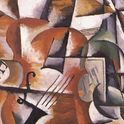The Bamboo Stalk, Saud Alsanousi (Bloomsbury Qatar Foundation, £16.99)
The Kuwaiti novelist Saud Alsanousi has found an original way to write about the perennial themes of the Arab novel: the place of religion and the influence of foreign cultures on a traditional society.
The Bamboo Stalk, which won the International Arabic Booker in 2013, is narrated by José, the product of a brief marriage between his Filipino mother and Kuwaiti father. They met while she was working as a maid and he was an idealistic young writer. After they divorce, José grows up in the Philippines yearning for his father’s land. Where the novel really takes off is when he returns to Kuwait after his father’s death and has to cope with the Arabs treating him like a foreigner. Brought up a Christian he is intrigued by Islam but can’t work out whether the Sufi-inspired spiritual path is the true heart of the religion, or the extremist gangsters of the Abu Sayyaf group, which in 2001 murdered 12 Filipino hostages. He also brings a sharp insider-outsider’s eye on Kuwait’s social mores: the men with long hair under their headdresses, the girls in fashionable beehive-style headscarves. Translated neatly by Jonathan Wright,
The Bamboo Stalk occasionally meanders and the narrative could have been better knitted together. But Alsanousi offers a fresh and bold perspective on Kuwait, and a melancholy portrayal of a man who compares himself to a bamboo plant wrenched from its soil, “with no past, no memory.”












